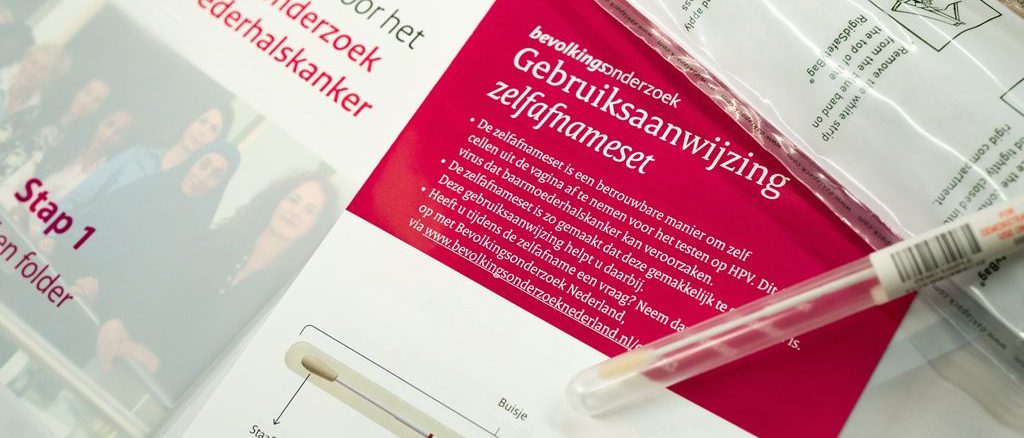
Hackers focus on medical institutions: ‘They know where money can be achieved’
Cyber criminals have the data of nearly half a million women stolen From a laboratory that did research for the population screening. An analysis by the NOS of the data that has already been published by the Hackers group shows that in most cases it concerns data from patients referred by a doctor.
This is largely about data from women who participated in a population screening for cervical cancer through a smear at the doctor or a self -test. That data from more than 53,000 people arrived through more than 1100 care providers.
The hack raises the question why criminals focus on medical data. According to cyber expert Joey Fennis, Hacker’s medical institutions attack because very sensitive information can be obtained there, such as test results and medical data.
“With a copy of a passport you can request a new document, but test results from an STD or cancer research are not repairable. That remains when it is leaked on the internet.”
Ransom
That is also for the organization that preserved the data, he explains. “Because this information is confidential and theft of it infringes the privacy, the organization wants to save its reputation.” That is why it is often inclined to pay ‘ransoming’ that the hackers ask, Fennis says.
He explains that hackers do good research before they perform a hack. “They view the annual turnover of an organization in the company data at the Chamber of Commerce, and then demand an amount, often 1 or 2 percent of the annual turnover.”
Probably the organization that has now been hacked cannot pay the asking price, and are now negotiating it. “Also because the hack has already leaked to the media, the organization tries to reduce the price,” says Fennis.
Scam practices
As long as criminals keep the data, they can misuse that information in scams. “With this information they look very credible. For example, they do that to fool you, to transfer money or to install something on your phone or on your PC,” says Eward Driehuis. He is chairman of the international cyber security organization CSIRT.Global.
The thieves use this data for Social Engineering, a manipulation tactics from Hackers. “Suppose I have the details of Mrs. Els. I will look at the sister or son of Els,” said Driehuis. A criminal can occur with them as Els and ask to transfer money or send bank details. “This way criminals can fraud or extort people.”
Social Engineering
Social Engineering is a technique that internet criminals use to steal personal or sensitive information from companies or people, or people. They do this through psychological manipulation.
“Social Engineering is often successful because it focuses on basic human reactions”, writes The Digital Trust Center of the Ministry of Economic Affairs. A well -known form is to scare people with so -called outstanding accounts or fake fine.
There are physical and digital attacks. With physical attacks, for example, the shoulder is taken if someone works in public transport to gather personal information. But criminals can also search the waste, see a lost USB stick or present themselves as someone else. Digital attacks involve phishing emails, bells, text messages or WhatsApp messages.
Consumers often only get that personal information is stolen when they are approached, Driehuis explains. “Your data is on the servers of countless companies. They all have their own responsibility to handle that data with care.”
Credible story
The most important thing is that people in general remain alert, says Driehuis. “Pay attention if you do digital communication, so if you get links, for example, or if a friend of yours suddenly appts with a new number.”
Even if it seems as if a knowledge apps from a new song with a credible story, you have to be careful. “Then there is a chance that it is a criminal who wants something from you,” says Driehuis. He then recommends calling the old number of the knowledge.
Because it is now a hack at a medical laboratory, Driehuis warns of all digital medical communication with the doctor or health insurer. A criminal can occur on the phone as the health insurer and ask for an outstanding amount. “A tip always remains to say: I will call you back immediately. And then call the doctor or insurer immediately.”
Slipper
Consumers are sitting with the baked pears after such a leak. Driehuis: “This type of data can be used against you for years. Suppose you are busy or on the road and you are called at that moment by someone who occurs as someone else. A slipper is made like this.”
According to him, it is not clear whether victims can go to court. “I know no way to be compensated for that. The existing legislation is not yet set up on a hack like this.”

Be the first to comment